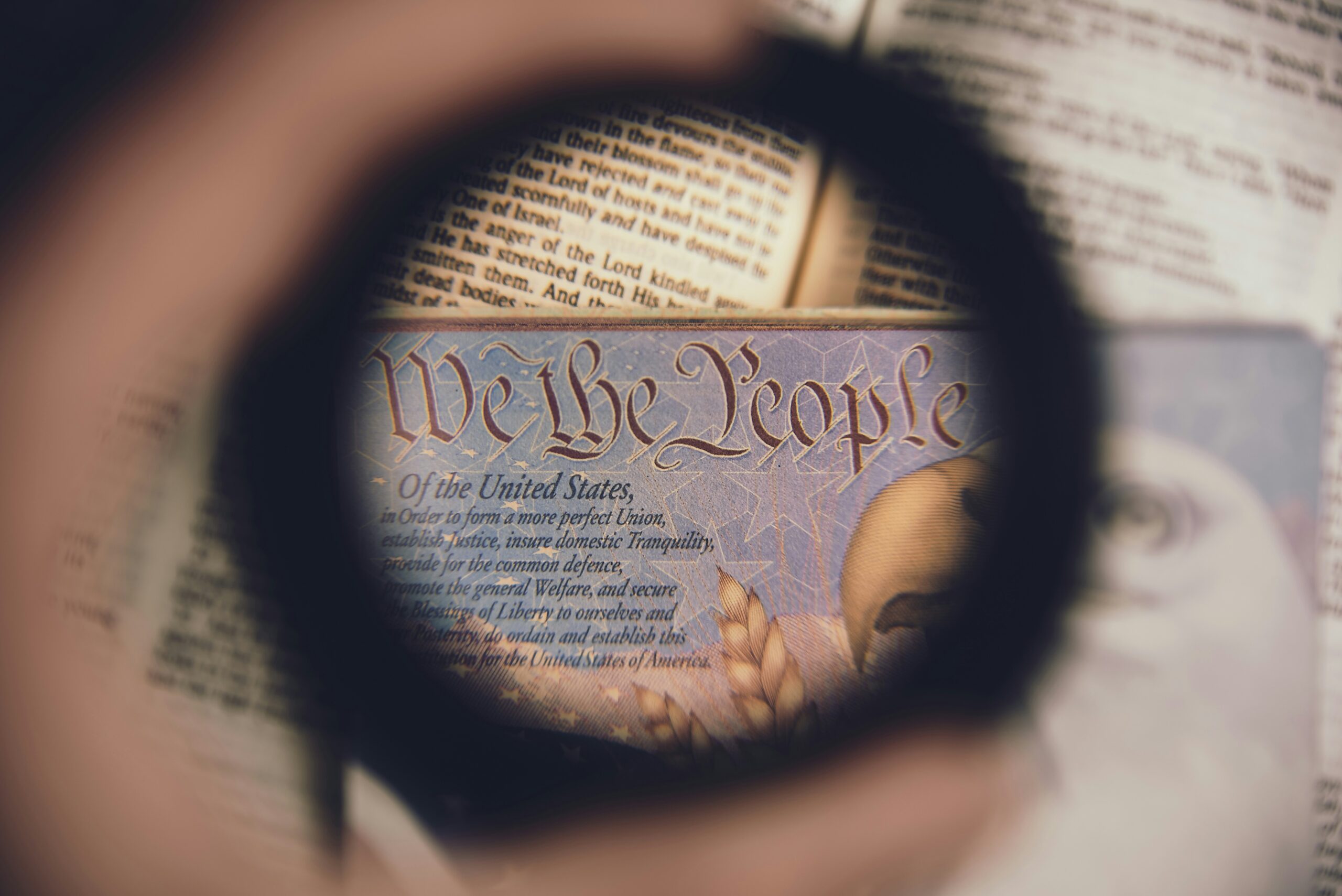Image credits: Anthony Garand, licensed under Unsplash
Written constitutions are crucial bulwarks of fundamental liberty against short-term democratic majorities. Constitutions enshrine certain individual rights so that they are protected against legislation that might infringe those rights. Because it is so important to keep those protections in place, constitutions frequently set a high bar to formal amendments. After all, an amendment could eliminate protection for a right and leave it subject to the whims of future majorities.
One example is the United States Constitution, which requires three quarters of the states to agree before the Constitution can be formally amended. That makes it exceedingly difficult to change. Yet sometimes courts or government officials have succeeded in “stealthily” amending the Constitution by simply ignoring one of its provisions. These stealth amendments weaken constitutional protections and undermine the purpose of constitutional rights.
One of the starkest examples of this phenomenon is Section 2 of the Fourteenth Amendment. That clause says that when a state denies or abridges the right of any male citizen 21 or older to vote, the state’s census count “shall be reduced.” The only exception provided in the text is if the disenfranchisement is “for participation in rebellion, or other crime.”
Yet the executive branch has for 150 years neglected to apply Section 2 and declined to reduce the census count of any state. The Census Bureau has instead produced its count of state populations and apportioned house seats as if this reduction requirement did not exist, making Section 2 effectively a “lost provision.”
But why should we care? Because this is a particularly blatant symptom of a much broader problem. The nonenforcement of Section 2 goes to a fundamental debate about constitutional structure: How does a constitution change? By formal amendment or by informal consensus?
Understanding how a Constitution legally changes is necessary for understanding what is currently the law. As Professor Stephen Sachs has explained, “the legal rules that the Constitution establishes today are the ones it established at the Founding, plus any lawful changes.” Because “our law stays the same until it’s lawfully changed,” our law can only be understood by identifying lawful changes. Every legal system has rules of lawful change, and “until something happens to trigger those rules, everything that’s already in the system is supposed to stay the same. That’s what it means to have rules of change: if the rules aren’t satisfied, there’s no change.”
So what are the U.S. Constitution’s rules of lawful change? On one straightforward view, the Constitution can only be changed in the way the Constitution says it can be changed: the formal amendment process. Harvard Law School Professor John Manning has laid out the case for this view. The original text of the U.S. Constitution was the product of careful compromise, as were all the amendments that have been subsequently enacted. Why then should anything less than a formal amendment have the power to change the text as agreed to? In other words, “judges should adhere strictly to clear and rule‐like constitutional texts.”
But on another view of the U.S. Constitution, notably propounded by Professor Bruce Ackerman, the amendment process has become too cumbersome and “no longer makes sense for us.” On this view, the U.S. Constitution can be effectively changed not just through formal amendments, but also through “constitutional moments” when the nation acquiesces to new governmental powers that would have been unconstitutional under the “old” rules (the New Deal under President Franklin Roosevelt in the 1930s is frequently invoked as such a moment).
There are many variants of this latter view, but what they all have in common is the belief that some combination of external factors (e.g. necessity, longstanding practice by the political branches, an erroneous judicial decision that gains widespread acceptance) can “change” the meaning of the U.S. Constitution without a formal amendment.
While the Supreme Court has never explicitly endorsed this latter view, several of its decisions have implausibly found ambiguity in the constitutional text and allowed modern political will to trump original meaning. Thus, during the New Deal, the Court held that the U.S. Constitution’s prohibition on state laws “impairing the obligation of contracts” actually includes an invisible “except in times of economic emergency” exception.
And perhaps most egregiously, the Supreme Court has retained its early misinterpretation of a crucial rights provision in the Fourteenth Amendment for over a century. In the 1870s, the Court almost completely erased the “Privileges or Immunities” Clause from that amendment through an erroneous interpretation, and that interpretation has remained binding judicial precedent for nearly 150 years out of sheer inertia. The Court recently admitted that it saw “no need to reconsider that interpretation” because the erroneous approach had been the judiciary’s practice “for many decades.”
In each of these instances, the Court has effectively allowed de facto alterations to the U.S. Constitution’s original meaning to occur not through formal amendment, but instead through the concerted actions of just one or two branches of government.
That is the unfortunate trend of which the erasure of Section 2 is a striking example. If such an explicit constitutional command can be ignored by the executive branch, any constitutional provision could be similarly erased without a formal amendment. If instead we insist that Section 2 is the law of the land until lawfully changed by constitutional amendment, we stand for a principle that is the best chance of preserving the Contracts Clause, the Privileges or Immunities Clause, and every other endangered constitutional provision.
A nation’s constitution should be interpreted to mean exactly what it says until it’s lawfully and formally amended. Every single word.






